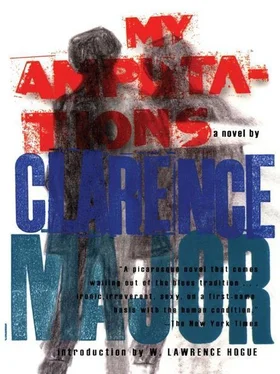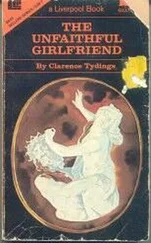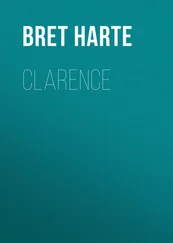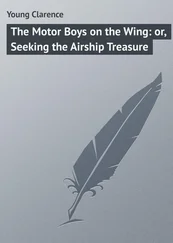Clarence Major - My Amputations
Здесь есть возможность читать онлайн «Clarence Major - My Amputations» весь текст электронной книги совершенно бесплатно (целиком полную версию без сокращений). В некоторых случаях можно слушать аудио, скачать через торрент в формате fb2 и присутствует краткое содержание. Год выпуска: 2008, Издательство: Fiction Collective 2, Жанр: Современная проза, на английском языке. Описание произведения, (предисловие) а так же отзывы посетителей доступны на портале библиотеки ЛибКат.
- Название:My Amputations
- Автор:
- Издательство:Fiction Collective 2
- Жанр:
- Год:2008
- ISBN:нет данных
- Рейтинг книги:5 / 5. Голосов: 1
-
Избранное:Добавить в избранное
- Отзывы:
-
Ваша оценка:
- 100
- 1
- 2
- 3
- 4
- 5
My Amputations: краткое содержание, описание и аннотация
Предлагаем к чтению аннотацию, описание, краткое содержание или предисловие (зависит от того, что написал сам автор книги «My Amputations»). Если вы не нашли необходимую информацию о книге — напишите в комментариях, мы постараемся отыскать её.
My Amputations — читать онлайн бесплатно полную книгу (весь текст) целиком
Ниже представлен текст книги, разбитый по страницам. Система сохранения места последней прочитанной страницы, позволяет с удобством читать онлайн бесплатно книгу «My Amputations», без необходимости каждый раз заново искать на чём Вы остановились. Поставьте закладку, и сможете в любой момент перейти на страницу, на которой закончили чтение.
Интервал:
Закладка:
The plan was simple: Jesus, Brad, Edith, Painted Turtle and Mason would knock off the Chemical Bank at United Nations' Plaza. They'd be successful and Gianni D'Amico and Joe Valenti would in exchange for heavy bread get Mason his booklet and plastic. Plus: everybody would get a lot of loot — split equally. They'd go separate ways: for safety. But first: in order to get the Hotchkiss — maybe two of ’em — they needed quick, easy money: they'd hit a bodega — a thing Jesus knew how to do — to get cornmeal for the Japanese ninety-twos and, if lucky, even a W two-sixty-three machine pistol. Brad had a misfiring Smith and Wesson twenty-two, Jesus owned an old forty-five with a worn pin. They sat in Edith's place planning the downtown hit. Mason, who owned no gun, pranced back and forth in the room like a torero escaping a bull. Now that Mason had improved the quality of his imagination he enlisted Jesus, impulsively, to test him: good bank robbers had to have incontestable imaginations. Image? So assume a secret plan concealed a design: he had to know the wire-works of it. Jesus said: “Okay. Ready?” “Yeah. City with yellow light on scrapers. Black water beneath iron bridge?” Jesus shook his head. “No.” “Church windows glowing from inside?” “No.” “Hillside with frame houses facing sunset?” “No.” Mason began to feel tense and angry. Jesus, casually sacked out in a beanbag, looked up. “Well?” “A nervous horse being operated on in a veterinary center?” “Wrong again.” “Going downstream on a quiet river surrounded by plush exotic Conrad-trees at dusk under a blue African sky with red clouds?” “Naw — give it one more shot. One more for the imagination!” “Okay. Ah—” but the doorbell rang and they all jumped like wall-wire short-circuiting. They didn't buzz and nobody came up. Mason opened a beer. He figures better with a drink? He puzzles me. If I tie a string to his nervous little finger and connect it to a large C hanging, say, in the sky, then connect the C to Celt and from her stretch it from myself to Mason, then jerk the end of the damn thing — what would happen? Would I get any added up, totalized meaning, plot? Here they go: they, say, strut into the bank: “Motherfucker, open the cash drawer. Give me all the hundreds you have.” No. They gotta be smarter than that. What if they take along a duffel bag? While Mason and Jesus hold the clerks and guard at gunpoint, Brad could fill the bag going along the counter. Or Jesus could fill. That'd give ‘em a hell of a lot of carrots and potatoes. Of course they'd be putting all their rotten eggs into one basket but what the—. No matter what, they couldn't go in with a stupid sticking hammer nor a rusty cartridge-chamber. Painted Turtle was in the dark bedroom, alone, brooding. Mason went into the kitchen where Edith was boiling gun metal-colored water for her three-minute egg. Still on a diet. They won't let you fuck in films if you get too fat. Jesus started talking excitedly about the old PR who ran the bodega on the corner of Sixth and C. Edith brought out tea and even PT came out for some. Public Enemy used to get high on tea: just drank it hot and got smashed. Only person on earth who got drunk as a skunk on Lipton's. Like Public, he was still doing time, wasn't he. At one point Mason had so little time to do it seemed to him crazy to join Public and the others in a break. But wasn't this yet another kind…? Anyway, Mason threw a Milton Bradley softball against the wall: surrounded by gentle murderers, cute armed robbers, depressed rapists, big, dark drag-queens, punks, jocks, hit-men, wire-tappers, mass murderers, and generic types who ate razor blades for breakfast and cut vein-lined throats at the frenzied high point of prison sodomy-rape. Mason — who was nervous — had a problem catching the ball on its return. Public was waiting there for an answer. You with us or not? Man or mouse? Bull Moose, who'd casually cut off his woman's head and carried it in a plastic shopping bag over to the East River five years ago, was laughing at Mason's hesitation. Squirrel, a pretty boy, who got gang raped every day, was biting his nails. Grits'd whispered to Mason that morning: “Shotgun's gonna waste you just before the break if you don't.” Just like in the movies: taut social cables between them. These men, dear reader, were not polite beachgoers saying Ouch! to the rocks along the shore near Eze. Mason felt his life about to hit the fan. All because of silly tea. But the break was called off at the last minute because the Governor had gotten wind of it and sent a secret message by way of the warden: “I will shoot to kill.” He might have been drinking tea, too. Who knows. Oh, the woes of a life of crime. Although Mason thought of himself as innocent, a victim, he had not managed to completely erase his memory of his days of catgut-slick petty theft. Listen to this: the fifth floor was dark except for hard light from the street. Swiftly Mason quietly checked all the cash registers: locked locked locked— ah! un locked. He stood there, tense as a long-legged cowboy badly breaking a broomie. Then: with his upturned index, holding the drawer from its bottom, so as not to leave prints, he gently pulled, hearing the sweet turn of the smooth rollers in their grooves: he lifted the paper money out from under the bars — feeling a kind of bronco-buster's victory over a gut twister. His bad actor was Life-Up-Till-Now. He felt no sympathy for society, folks; didn't feel he was doing anything wrong. Cheated from birth, he reasoned, he was simply a rat stealing a crumb. That sluttish rush of excitement he felt, as he stuffed the loot into his jeans, was hoedown-swoon he could live with. Then Mason went on through the dark before him. Surely there had to be another — greater mistake. That was the thing about it: it got good to you. He woke up often in confinement: drenched in his own bile, sweat, urine. His own hopeless face, mirrored, shared nothing with him. It belonged to another guy he'd never met. Miss Hand and Her Five Daughters were his female companions. The queens and jocks didn't want him — luckily — because he was too old . As I told you, Mason was a reader: he read Verlaine, Oscar Wilde, Chester Himes and Iceberg Slim and Genet and Cassanova and Villon and Cervantes and, draw iron, that victim author of modest rep.
When Mason and Jesus stepped into Sanchez's Bodega at Sixth and C a gray stickup artist was already holding a nervous W two-sixty-three on the leather-skinned old man and his single customer, a gaudy Puerto Rican woman in a Sears & Roebuck blue flower print who was whimpering in terror. The gunman, with matted long light hair, looked like a burned-out flower child. His trigger-talk was unconvincing. Yet, uh, y-yet… it took Mason and his sidekick a full minute to comprehend what was happening. A sluggishness held Mason right up to the moment of Judge Colt-perception. The gunman, a boy excitable, impulsive, grouchy, hog-wild, nuts, was a true danger — and Mason and Jesus knew it. And moved like they knew it. He waved his impressive machine pistol at them. “All right, get over there with her—” California accent? And as Jesus and Mason obeyed, Mason's plan was to stick up the boy after he stuck up Sanchez. Why not? He had to get there by hook or crook. No moron could be tolerated in his path. The old man handed over the stack of dirty bills to the kid. As the flower child stuffed them into his jeans he relaxed the gun slightly. When he looked down at his own hand, Mason rushed him — pushing Jesus' old, worn, rusty forty-five into the boy's right ear. “Make one move an you're a goner. Hand it over.” Mason meant the W two-sixty-three. The kid obeyed. Mason stuck the weapon down in his belt under his jacket. “All right, the money, kid!” He handed it over and the hippie shot. Mason's mudfrog itched but this was no time to scratch. While the old man was profusely thankful, and reaching for the money, Mason was opening the machine pistol — no magazine. “It's empty!” Sanchez took the dough out of Mason's hand. Mason gave the old guy a startled look. “Gracia, gracia…!” And guess what? Mason nor Jesus had the twist of heart to tell him he was not truly in spirit vindicated. Meanwhile, Mason saw the kid hauling ass through traffic against red. Mason and Jesus, embarrassed, stepped out backwards, ruffled and guilty, as the grocer offered them ten bucks reward. Some Witches' brew this venture turned out to be. Well, at least they had an impressive weapon — exactly the one Mason dreamed of. In fact, perhaps there was more irony here than farce: the machine pistol cost more than they probably would have lifted from the cash register. Was this the same Mason who in the joint had read The Author's works over and over again till he convinced himself he was the writer and no longer the reader? Paradoxical or not, he was still the imposterous bilker! Quoting Conrad! — and I'm sure he could quote Melville's The Confidence Man —and might yet. I grant him agility in his mission but little else. Was he a single snow-rooted and arctic flower-weed in a storm? The Island, of course — as corny as it is — was himself, and he had, in a sense, not left it, not reached it. Although Joyce Kilmer's so-called tree was only a symbol, it spoke out of a complex anxiety in this drinker of scamper juice: namely his need to maintain a sort of membranous contact with nature through the printed sheet held to light. “Naked he was forced to stand in the sunrise, his incisions bleeding… ” That confidence now shaken by insistent irony, one so penetrating Mason now felt was lost as, say, Conrad's Marlow when he found himself plunging on deeper into the hoosegow he called darkness. Mason's icky self-deception was excruciating: a madman, surely: a mirthlessly deranged four-flusher who meant to dream his way through very serious, ugly business. His mission, you see, had him rushing downstream toward a great waterfall. Painted Turtle had the potential — though not the willingness — to turn him into a respectable citizen, a man of true integrity and credibility, but never mind: he hadn't been ready even if she'd been interested enough. Plus she was moody, depressed, at the end of much failure, a helpless singer without a song, unable to return to Zuni where others still managed to be whole, she too was lost. So Mason fumbled on, hearing the buzz of C's and the drip of Z's deep within. A chiseler well-oiled by guilt and grief, Mason carried the weight of symbols: fish and bird ones. Walking with his “friend” Jesus, he now found himself on the filthy, desperate streets of the Lower East Side again, carrying a gun, a victim of many trick mirrors. Here no shade as under that jazzed up tree. No sir. This was jalopy, jellybean poverty — as background, and in the foreground, in himself: sluttish rage and self-doubt. No mandrake here. Grim, grim, grim. And it was precisely this contrast he needed now and hated: it blazed in him with its discoloration of his so-called lyric nature. Lyric, uh, nature? So be it. No one escapes romanticism: not even tough guys. In fact, I swear, especially not tough guys. He surely needed a formula for clarity of direction: perhaps this: in a mixture of bay leaves, rosemary tops, two and a half pounds of pig fat, dump eight baby swallows (fresh out of nest with tails and longest feathers removed) then place in blender. Add salt and pepper to desire. Switch on. While at Attica, Mason read the Book of Knowledge (1687) and now seriously tried to remember some of the ancient formulas for “clear sight.” Who was to swear the 1654 Pharmacopoeia entirely out to lunch? Moral guy, this. Morality applied only to the content of one's attitude. Hem was right: it was what made you feel good. Don Quixote had good intentions but his attitude was without reliance. Clarity? Did Mason really want it, reach out decisively for it? I smelled a rat. Remember Nietzsche (not a friend of mine!) said, “Aren't books written precisely to hide what is in us?” And another dead man, also puzzling over the relation between “ clear reality” and confessional writing, Jack Kerouac, in Vanity of Dulouz —go to it Jack: “I'll… get to believe… I'm not… Jack… at all and that my birth records… published books, are not real… that my own dreams… are not dreams… that I am not ‘I am’ but just a spy in somebody's body pretending… ”
Читать дальшеИнтервал:
Закладка:
Похожие книги на «My Amputations»
Представляем Вашему вниманию похожие книги на «My Amputations» списком для выбора. Мы отобрали схожую по названию и смыслу литературу в надежде предоставить читателям больше вариантов отыскать новые, интересные, ещё непрочитанные произведения.
Обсуждение, отзывы о книге «My Amputations» и просто собственные мнения читателей. Оставьте ваши комментарии, напишите, что Вы думаете о произведении, его смысле или главных героях. Укажите что конкретно понравилось, а что нет, и почему Вы так считаете.












